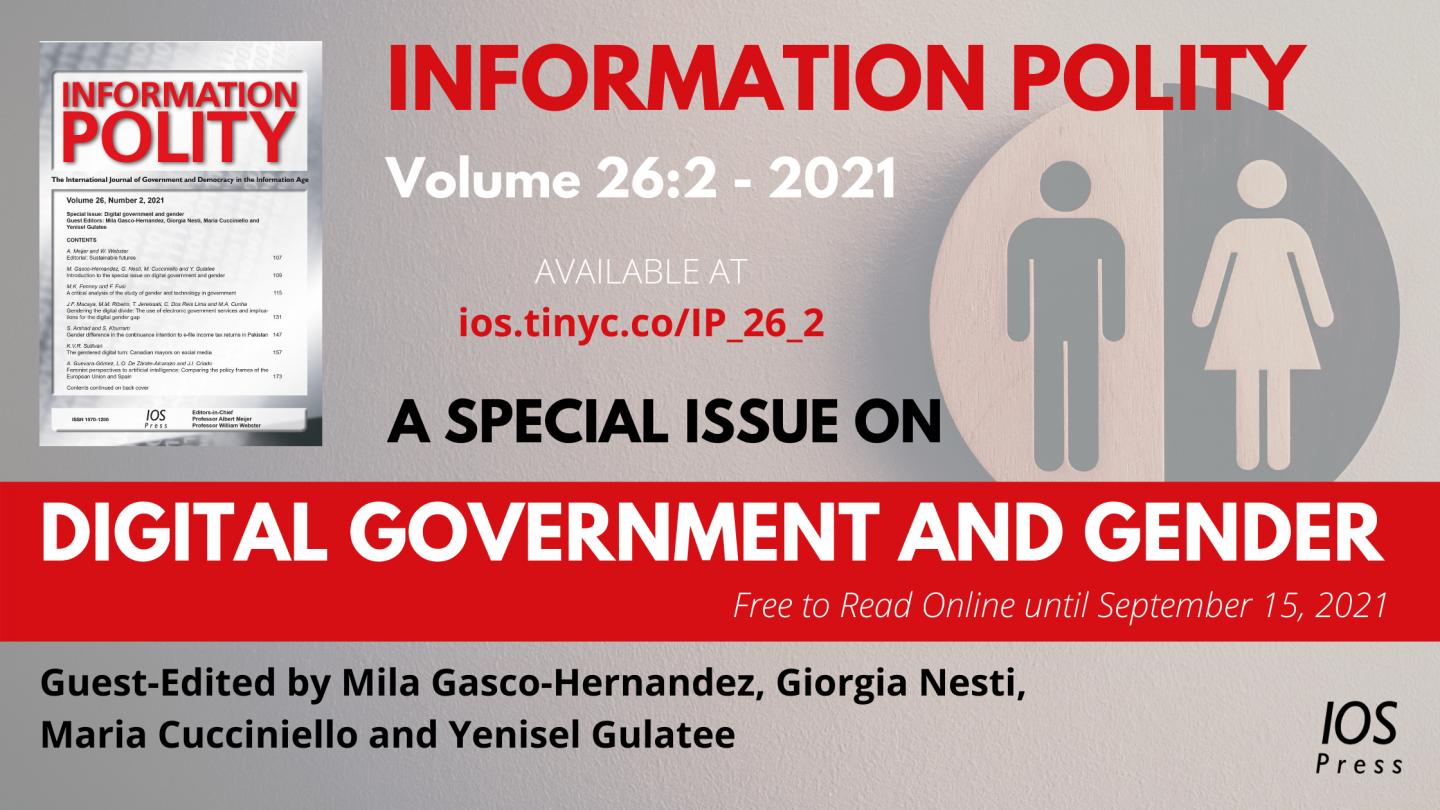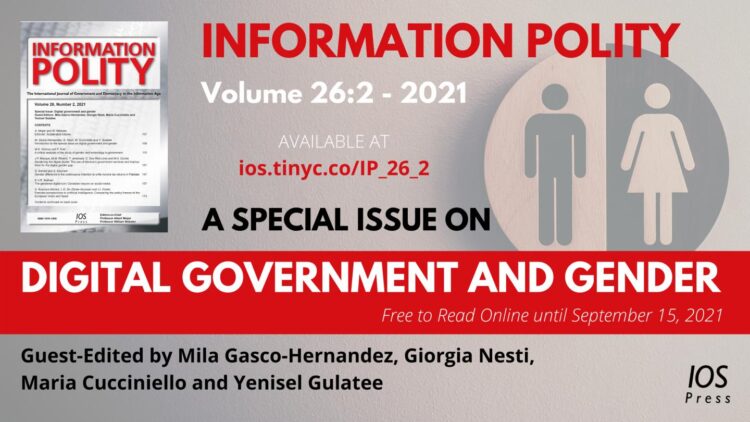Experts explore the persisting digital gender gap in digital government research and practice and present a vision for future research in this Special Issue of Information Polity

Credit: Information Polity
Amsterdam, July 8, 2021 – While the literature on the digital divide has widely addressed the digital gender gap, its potential implications for electronic government (e-government) / digital government research and practice have hardly been studied. In this Special Issue of Information Polity experts characterize the current state of understanding of the issues surrounding digital government and gender and present an agenda for future research.
Gender is a neglected topic in the literature on digital government. According to the International Telecommunications Union, women are lagging behind men in making use of the Internet in almost two thirds of countries worldwide. Overall, the proportion of all women using the Internet globally is 48%, compared with 58% of all men. More men than women use the Internet in every region of the world except in the Americas, where the gender gap continues to hover around zero, and in the European Union (EU), where the percentage of men using the Internet in 2020 was around 90% percent, compared with 88% of women.
“Science, math, and quantitative fields in general have always been perceived as male fields,” explained the guest co-editors. “Despite the progress made in the last few years, technology is still seen as a tool for men. A more comprehensive view on gender is needed that includes male authors discussing gender issues and that also focuses on men and the differences between men and women, but in addition to the LGBTQ collective.”
“Most published studies to date have focused on adoption and use of technologies by women, but we also need deeper insights into the impact of technology on the quality of life of women,” the guest co-editors remarked. “We need to collect more gender-sensitive data on the usage of digital government services in order to better understand women’s needs and design services accordingly.”
This Special Issue presents five articles, two book reviews, and a comparative country report that characterize the current state of understanding to raise awareness of the issues and open an opportunity to build a research agenda on digital government and gender. The articles in this issue revolve around:
- The study of gender and technology in government
- The use of electronic government services and implications for the digital gender gap
- The gender difference in the continuance intention to e-file income tax returns in Pakistan
- The use of social media as a promising communication tool by mayors in Canada, which is more accessible to women than mainstream media
- A comparison of the AI policy frameworks of the European Union and Spain
- The development of digital governance in Mongolia and Taiwan
- A review of two books: African Women, ICT and Neoliberal Politics, by Assata Zerai, and Data Feminism, by Catherine D’Ignazio and Lauren Klein
Collectively, the articles included in this Special Issue indicate that researchers worldwide are building a consistent research agenda around the topic of digital government and gender. “The future looks hopeful,” commented the guest co-editors. “Young women scholars are more and more interested in addressing these issues. There are academic organizations and groups, such as Academic Women in Public Administration, that want to address gender inequality in different fields including technology. The level of interest in this issue shows this is an important topic.”
The guest co-editors provide a research agenda that they hope will form the basis for future research. They stress that there is a long way ahead and further research should be conducted in order to better understand how inequalities interact and impact women’s willingness and propensity to adopt and use digital government, as well as how digital government impacts women’s quality of life.
“A gender perspective should be integrated in designing public services in order to better assess women’s needs and avoid gender biases especially in emerging fields such as AI and big data analysis. Future research could also focus on gender-based use of different technologies and participation in technology-based initiatives, further exploring the variation in drivers, determinants, and outcomes among social media, online participation platforms, digital co-production, and online services, to just name a few examples,” the guest co-editors concluded.
###
Media Contact
Diana Murray
[email protected]





